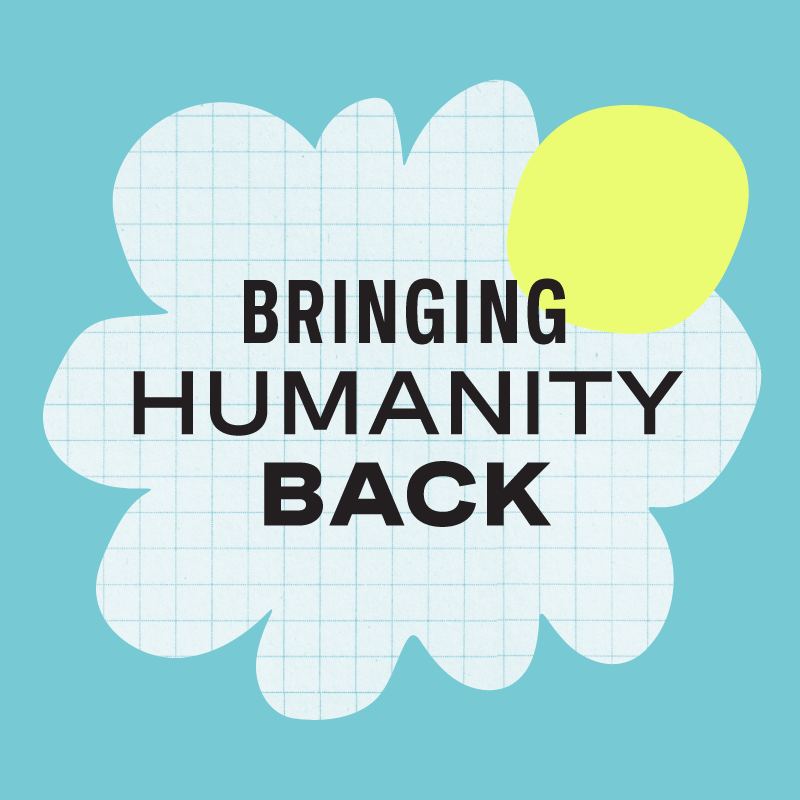Bringing Humanity Back: Update on Our Orchid Wellbeing-First Fellowship
In a recent Orchid meeting, a clinical team member shared something profound:
"Orchid’s 30- and 60-minute patient visits... they allow me to connect with patients and bring humanity back to care."
Time paused for a moment after those words were spoken.
It’s simple and radical. It’s what everyone working in healthcare dreams of. To be given the time, space, and support to truly care for people, not rush them through like transactions on an assembly line. Can you imagine a future where we have this much time together in an appointment?
This is the future Orchid Health is building. A future that is aligned with the industry's transition toward value-based care.
Today, as Orchid’s Wellbeing-First Fellows, we are taking this work even further. Distilling the model, testing new approaches, and refining ways it can scale to transform healthcare well beyond our current clinics.
Five areas where Fellows are thinking and building?
As Fellows, we are exploring how to chart, distill, and scale a journey that builds healthcare systems rooted in caregiver wellbeing – not burnout! Here are five areas of our inquiry:
1. Begin by rooting our work in the wellbeing of our people.
Our journey starts with an urgent question: How do we honor caregivers as the foundation, not the fuel, of a thriving system?
At Orchid, caregiver wellbeing isn’t an afterthought. It’s the foundation. If care teams are thriving, they deliver better care. Before making any big decision, we ask: How will this impact our team wellbeing? If it would worsen burnout, we go back to the drawing board.
We are on a mission to design and share a new operating model that supports this fundamental philosophy at every turn. This includes enabling care teams true autonomy to design workloads that allow time for connection, reflection, and collaboration.
2. Teach others how to measure what matters.
Along the path, we've created a simple steering dashboard that supports all teams understanding the bigger picture; everyone is rowing in the same direction in pursuit of organizational health and the advancement of our mission. At Orchid, we measure what we value. Instead of focusing solely on productivity, we anchor our measurement work on the Wellbeing-First Flywheel:
Employee Wellbeing
Trusting Patient Relationships
Community Health
Financial Sustainability
In practice, our local Orchid clinic teams review these indicators on a four pillar dashboard monthly. When we center humanity, better outcomes follow. Here’s a short list of the results we see.
Employee loyalty and pride: our internal eNPS (Employee Net Promoter Score) is 3x the national average, signaling strong engagement and enthusiasm across our team.
Patient experience excellence: our primary care NPS (Net Promoter Score) is 2x the national average, reflecting deep trust and strong relationships with those we serve.
Team stability: we’ve achieved 90% employee retention, far exceeding national averages in healthcare.
Better outcomes, lower costs: our first clinic saw a 40% reduction in emergency department utilization, demonstrating the power of proactive, relationship-based care.
Fellows are exploring how we might share a simple, transparent, and replicable dashboard system that everyone, from clinicians to board members, can own together.
3. Help others build their culture with clear intention and wellbeing-first values.
We aren’t afraid to confront the deeper work. Orchid seeks to ensure that every habit, decision, and system reflects the humanity we believe in. We can’t change culture without changing daily behavior structures.
The Fellows are closely examining how Orchid’s daily practices align with our core values — Challenge the Status Quo, Cultivate Respect, and Be Courageously Vulnerable and Accountable. We seek to understand how these practices can be adapted and translated for a broader audience.
We are exploring ways, like public workshops, peer learning circles, and hands-on coaching, to bring the broader healthcare leadership community together to examine the small, daily habits within their organizations and redesign them to better reflect their values.
Want to try it? It begins with one simple habit at a time. Start your meetings with a check in question in order to ensure everyone has the chance to participate right from the beginning and ground the meeting in shared humanity. Not sure what to ask? We sometimes use the free check in question generator offered here: https://checkin.daresay.io/.
4. Gather and share the tools and mindsets that help organizations thrive.
We seek to codify what is working for Orchid and equip others to begin their practice too. This isn’t about creating rigid rules, but to offer living frameworks others can adapt and grow from.
Healthcare is in crisis. Burnout is rampant, patient trust low, and independent clinics are disappearing, especially in rural communities. That’s why Orchid exists. To show a different way is possible.
Our Wellbeing-First Fellows are working to make the model even more accessible: documenting the mindsets, tools, and practices that have made our clinics thrive, and creating frameworks to inspire other healthcare organizations to make wellbeing a non-negotiable standard.
5. Scale carefully, courageously, without losing our way.
Our final challenge is to multiply impact without diluting the soul of what makes wellbeing-first healthcare different, human, and whole. Orchid isn’t trying to become a massive national chain. But by 2030, we do aim to catalyze 1,000 wellbeing-first jobs across healthcare.
While traditional systems exhaust their workers, Orchid is choosing a different path. Designing a system that puts caregiver wellbeing first.
Through the Fellowship, we are designing new ways to communicate, share, and scale our principles, protecting what makes them special even as we grow.
Are you interested in joining a future wellbeing-first workshop?
Drop us a line here and follow us on LinkedIn.







